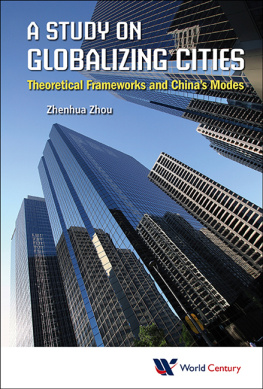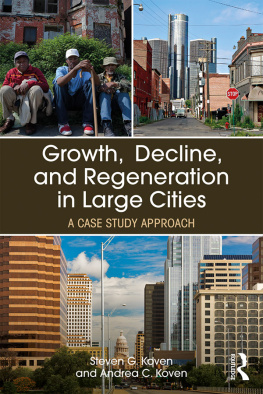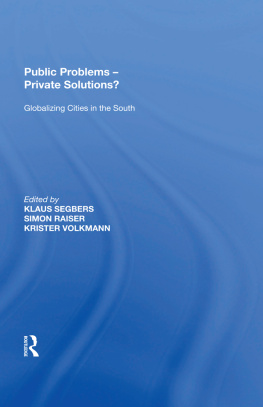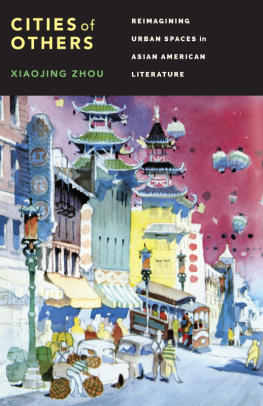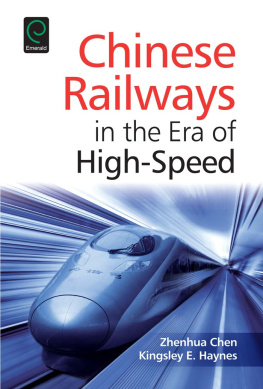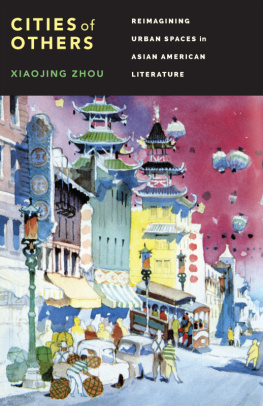Published by
World Century Publishing Corporation
27 Warren Street, Suite 401-402, Hackensack, NJ 07601
Library of Congress Control Number: 2013957736
British Library Cataloguing-in-Publication Data
A catalogue record for this book is available from the British Library.
A STUDY ON GLOBALIZING CITIES
Theoretical Frameworks and Chinas Modes
Originally published in Chinese
Copyright Truth & Wisdom Press, 2008
Copyright 2013 by World Century Publishing Corporation
Published by arrangement with Shanghai Century Publishing Co. Ltd. and Truth & Wisdom Press
All Rights Reserved.
This book, or parts thereof, may not be reproduced in any form or by any means, electronic or mechanical, including photocopying, recording or any information storage and retrieval system now known or to be invented, without written permission from the publisher.
For photocopying of material in this volume, please pay a copying fee through the Copyright Clearance Center, Inc., 222 Rosewood Drive, Danvers, MA 01923, USA. In this case permission to photocopy is not required from the publisher.
ISBN 978-1-938134-35-7
In-house Editor: Dong Lixi
Typeset by Stallion Press
Email:
Printed in Singapore
Abstract
In the background of interaction of globalization and informatization, the increase of economic resources flow on the globe has transgressed national boundaries, and what dominates the global economic lifeline is the global city networks, in which some global cities beyond nations in the space power have emerged. With the world urbanization speeding up, the continuous expansion and enrichment of the global city network will lead to the emergence of more global cities.
Since the reform and opening-up, China has maintained a sustainable rapid economic growth and increasing economic strength, which is recognized as a rising great power by the international community. But what is more important is that Chinas economy has been increasingly involved in the historical process of the economic globalization and holds an increasingly prominent position in the world economy. With the transfer of worlds economic center and the rapidly increasing flow of Chinas inside and outside economy connections, the presence of globalizing cities has increasingly become Chinas urgent requirement to speed up economic development and hold an important position in global economic network.
In the course of global city development, the object pursuits or positioning of global cities are likely to become the same, but global city development tend to take a variety of forms because of the different backgrounds, foundations, location factors, and historical processes and their specific path dependence. In comparison with the global cities in developed countries, Chinas global cities are quite different with respect to background, reality basis, and control conditions. So, while China may refer to the global cities in developed countries with regard to the object pursuits and positioning of Chinas global cities, it must not simply imitate their development models and path options but have an in-depth study and active exploration.
The globalizing cities should have been an important component of the theoretical study of global cities, but the traditional global city theory only pays much attention to those established global cities, having an isolating or empirical analysis, or making a static comparative study, and ignoring their formation process, which have actually excluded those cities that may possibly become global cities in the future. This is not a problem of simple neglect or inadequate attention: the innermost reason is that the theoretical framework of the traditional global city study cannot accommodate the study of the evolving process or globalizing cites. Since the mainstream study of global city theory directly derives the simple logic of global city formation from the background of globalization and informatization, their scope and perspective of study has been greatly limited, thereby becoming a major theoretical defect.
However, the fact that major cities in the developing countries are changing rapidly into regional centers and important nodes in the global economic system has already caught attention. Since the mid-1990s, scholars of the global city study began to study the possibility of globalizing cities in the developing countries and transitional economy systems. In recent years, many research documents of the international metropolis in the Mainland focus their topics on the globalizing cities. But generally speaking, for the issues of globalizing cites in developing countries, there are no in-depth and systematic researches but only mostly countermeasures study, which lack the corresponding theoretical frameworks and analytical tools. Therefore, the study of globalizing cities will not only fill a blank in the global city research but also enrich and improve the existing global city theory.
Yeung and Olds first put forward the concept of globalizing concept and incorporated it into the global city system study. According to the meaning of the word, globalizing cities are those cities that already possess corresponding infrastructure and are moving toward becoming global cities. To understand the concept, what is done first is not to make a simple definition (in fact, no single complete definition is given) but to acquire directly a number of related concepts such as globalization city and global city to understand the conceptual meaning of globalizing cities from their relations with each other. Here the study put special emphasis on the globalization city concept, which refers to many cities that have direct participation in the global economy and act as a node of the world city network. That is, it is the general name given to all cites incorporated into global city network, including the global cities, globalizing cities, and ordinary cities involved in the globalization process. A globalization city is not only an essential explanatory variable used by us to describe logic relations between the process of globalization and global city but is also used to form a direct theoretical basis of globalizing cities. A globalizing city must first be a globalization city and be interconnected with other cities based on the global city network.
Since the framework of a traditional global city theoretical cannot accommodate the globalizing cities, based on the theoretical framework of the mainstream global city theory and its limitations, this study introduces globalization city as a new intermediate explanatory variable, re-interpreting the world city system reform in the background of globalization and informatization; explaining the relations and variation among global cities, globalizing cities, and ordinary globalization cities from the perspective of global city network; and discovering the basic functions of global cities and the functional evolution trends of globalizing cities. In response to some control conditions such as background, development basis, and path dependency of globalizing cities in the developing countries, this study introduces new theoretical elements into the theory like global production chains, industrial clusters, and global city regions in order to form a new theoretical integration of analysis framework.
Applying the newly integrated framework of theoretical analysis, the main focus of this study is the positioning of globalizing cites strategic goal and its development path under the corresponding binding conditions, providing answers to the key questions regarding the development model and path selection of globalizing cities in the developing countries, for example, what means of participation should China, as a developing country, take in the globalization and informatization; what are its characteristics; and what kind of impact will it have on Chinas globalizing cities? What kind of favorable and unfavorable conditions will Chinas present stage of economic development and economic growth form to support Chinas globalizing cities? How should we select the development model and path of globalizing cites according to Chinas actual situation on the basis of following the general rule, basic spirit and principles of global city development? The explanation and analysis of this series of questions is also one of main contents of the study.


